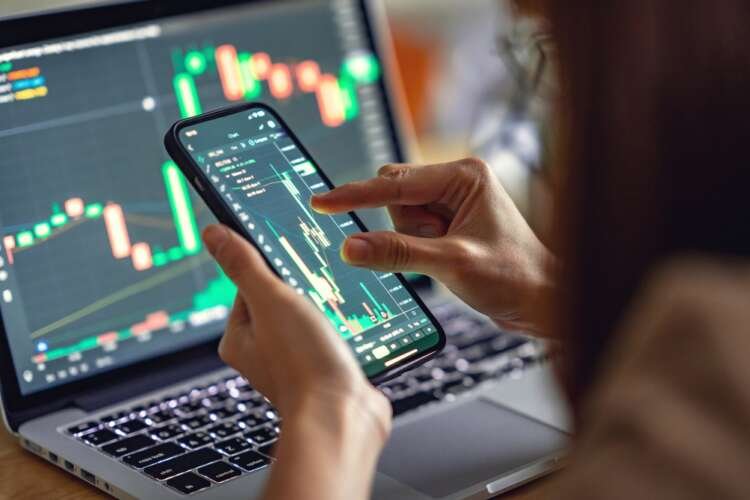How Do Crypto Exchange Platforms Work: All You Need to Know


You can’t go to your bank or an investment agency and acquire cryptocurrency. After deciding to purchase Bitcoin, Ethereum, or another cryptocurrency, you’ll need to open an account with a crypto trading platform to convert your US dollars (or other money) for digital assets.
Like the CEX crypto exchange platform and Coinbase, some have been active since the early 2010s, when there was significantly less regulation surrounding how cryptocurrency was purchased, sold, and traded. Others, such as Robinhood and PayPal, are better recognized for their other services and have recently begun allowing clients to trade cryptocurrency within their existing accounts.
Here’s all you need to know about why choosing the proper crypto exchange is so important and the aspects experts suggest you consider before deciding.
A cryptocurrency exchange is a site where digital currencies can be bought and sold. Exchanges can be used to trade one cryptocurrency for another — for example, changing Bitcoin to Litecoin — or to purchase crypto with fiat currency such as the US dollar.
On exchanges, the prices of cryptocurrencies are based on current market prices. You can also use an exchange to exchange cryptocurrencies for US dollars or other currencies, which you can keep in your account as cash (to trade back into crypto later) or withdraw to a traditional bank account.
According to Tyrone Ross, a financial advisor and CEO of Onramp Invest, a crypto investing platform for financial advisors, no one crypto exchange is appropriate for everyone. Instead, he recommends evaluating your crypto interests and finding an exchange that matches your objectives.
For example, perhaps you’re seeking a certain coin or want to learn more about cryptocurrency investing.
Depending on your jurisdiction, you may be unable to buy or sell cryptocurrencies on some exchanges due to state or national regulations. Some countries, such as China, have outright banned the use of cryptocurrency exchanges.
There is a lot of regulatory uncertainty around bitcoin in the United States, and several states have enacted their legislation. New York, for example, requires exchanges to obtain a BitLicense before operating in the state and only permits licensed organizations to offer certainly recognized coins.
You can usually see information regarding an exchange’s geographic constraints and associated accessibility issues like national currencies accepted on a website or in terms of service.
A government does not guarantee cryptocurrency, and your cryptocurrency assets are not insured in the same way that bank deposits or traditional investments are. Some exchanges, such as Coinbase and Gemini, maintain all your U.S. dollar balances in FDIC-insured bank accounts. However, bitcoin balances are not covered by FDIC insurance.
Whether you want to maintain your crypto holdings on an exchange for a long time or merely have them there for a short time before moving them to your wallet, the exchange’s security should be a top consideration. For example, examine how much of the exchange’s assets it stores offline in hard storage.
Fees are another consideration, but don’t let a high-cost structure deter you from participating in an exchange. According to Spencer Montgomery, CEO of Uinta Crypto Consulting, a crypto education program for new investors, “the easier they make it for you to buy it, the higher the fee you’re going to pay.” Larger, more popular exchanges may give better safeguards and insurance at a higher cost, an acceptable compromise.
If you want to trade, sell or buy bitcoin, be sure the exchange you choose has enough transaction volume to keep your assets liquid, meaning you can sell them whenever you want. There is one more occasion when size does important. Frequently, the most popular exchanges have the biggest transaction volumes.
Not all of the thousands of cryptocurrencies are available on every exchange.
If you’re looking for a popular coin like Bitcoin or Ethereum, you’ll certainly find it on any exchange you choose. Newer altcoins, currencies with modest market size, and meme coins, on the other hand, may necessitate a little more research.
Remember that these coins are often much riskier bets than the already highly speculative, more established cryptocurrencies.
Many experts advise investors to stick with well-known names like Bitcoin and Ethereum. Only trade in a monetary value you’re willing to lose with any crypto coin you’re considering buying on an exchange.
As if taxes weren’t confusing enough, reporting bitcoin can add another degree of complication to your tax return.
Any crypto trades you make must be reported as capital gains on your tax return. That means you’ll need to know the worth of your cryptocurrency both when you buy it and when you sell it in US dollars.
Because Robinhood is a platform-only exchange, it produces a Form 1099-B that tracks your cost basis, gains, and losses, which isn’t the case on other traditional exchanges.
Learning as much as you can about crypto before investing is one of the best things you can do, as we’ve heard from professionals repeatedly.
Think about the pricing structures and security measures you’re comfortable with and the extra steps you’ll take to keep your cryptocurrency safe.
This is a Sponsored Feature.
A cryptocurrency exchange is a platform where users can buy, sell, or trade cryptocurrencies for other digital currency or fiat currency.
Liquidity refers to how easily an asset can be bought or sold in the market without affecting its price. High liquidity means assets can be quickly traded.
Cryptocurrency fees are charges incurred when trading or transferring cryptocurrencies. These can include transaction fees, withdrawal fees, and trading fees.
Cryptocurrency trades are subject to capital gains tax. Investors must report gains or losses on their tax returns based on the value at purchase and sale.
Explore more articles in the Trading category











